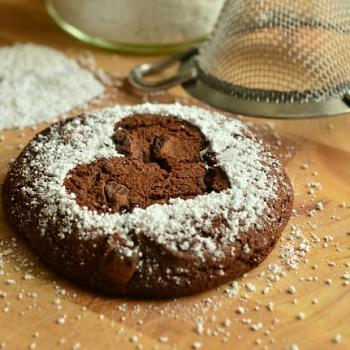My brother nodded.
“Well, a prostitute takes money to go and do that with someone they’re not married to.”
My brother’s eyes went wide as saucers.
Classic novels, like oldies music, were permitted and presumed to be wholesome, yet they also often turned out to be about sex.
I listened to a homily on CD by the infamous Father Corapi. I thought it was strange that he referred to anything from the 1950s as “wholesome;” even as a homeschooler I knew that wasn’t quite right. I’ve since learned to distrust anyone who thinks the 1950s were wholesome, and I haven’t often been wrong about that.
I listened to audio books, which I got from the library. The library had a wonderful reading of Alice in Wonderland and Through the Looking Glass on two cassettes; I used to listen to them as I did my yoga stretches in my bedroom, and hoped yoga wasn’t a sin. Some novels were difficult to listen to in audio books, but Lewis Carroll was easy. Perhaps it was all the dialogue.
I listened to compiliations of Dave Barry essays on audio cassette. The essays taken straight from his newspaper column were more or less family-friendly, but the books he wrote were sometimes not. I once told my cousin a joke he’d written about tampons, and my devout aunt warned me that that it was a dirty joke. I wondered why– tampons were practically the opposite of sex.
I listened to a maddening rap song meant to teach the multiplication tables. I had to. Our homeschooling tutor had given it to my mother to help my brothers and sister memorize multiplication facts. They listened to it all the time in their room, across the hall from mine. One side of the tape had a rhythmic recitation of the multiplication table, from one times one all the way up to twelve times twelve, with the occasional interjection of “Oooooh, rappin’ with the facts!” The other side of the tape had the exact same song, but with the answers to the multiplication problems omitted. Whoever made the rap song honestly thought that the children would shout out the answers as they sang along, but they didn’t. My brothers sang along with the lyrics provided. “Nine times seven is… nine times eight is… nine times nine is… nine times ten is… Oooooooh, rappin with the facts!”
I listened to classical music, when I started taking courses at the local community college to supplement my homeschooling. I loved the required art history classes in the humanities course. I loved listening to the music history professor explain how she’d made up silly lyrics to orchestral compositions to help her memorize who’d written what, for tests. “It’s a bird, it’s a plane, it’s a Motzart! Shoot it down, shoot it down, shoot it down!” “Oh my word! It’s Beethoven’s Third!”
I learned that all the rapid and bubbly piano playing in Bach’s pieces was because they were actually written for a harpsichord, which had no pedal to sustain the length of notes the way a modern piano did. I learned that a piano is called a piano because it can play both forte and piano. You’d be surprised how many people don’t know that. I still smile, as though I’m in on a clever secret, whenever I listen to Bach.
Those are ten things I listened to, which influenced me as a teen.
Not the kind of list you were probably looking for, but there you are.
(image via Pixabay)













